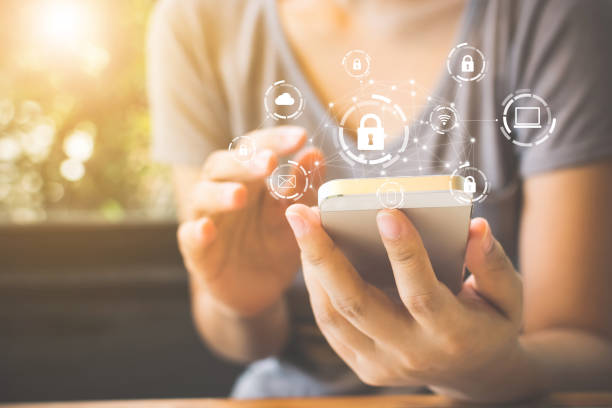Introduction
Hey there! Welcome to our guide on keeping your smartphone safe and secure. You know how important your smartphone is, right? It’s like your digital lifeline, holding all your personal things like photos, messages, emails, and even your bank details. But with all the cool stuff it does, there are also some sneaky people out there trying to get into it. That’s why we are here to help! In this guide, we’re going to give you some easy-to-follow tips on how to protect your smartphone. Whether you’re an iPhone addict or an Android enthusiast, these tips will help keep your device and your personal information safe and sound. So, grab your phone, get comfy, and let’s dive into the world of smartphone security together!
Importance of Smartphone Security
Okay! So your smartphone is like a treasure for you filled with your personal stuff – pictures, messages from loved ones, important emails, and maybe even access to your bank account. Now, imagine if someone broke into that treasure and messed with everything inside. Scary, right?
That’s where smartphone security comes in. It’s like having a guardian angel for your digital life. See, with all the cool things your phone can do, there are also sneaky people out there trying to sneak in and steal your stuff. But if you’ve got good security measures in place, it’s like having a lock on that treasure chest, keeping all your precious data safe from prying eyes. So, whether it’s setting up a strong password, keeping your software up to date, or being careful about what you download, smartphone security is super important. It’s your first line of defense against cyber baddies, helping to keep your digital world safe and sound.
Common Security Threats
Malware and Viruses:
One of the common threats is Malware. It is like a digital germ that infects your phone. It can sneak in through sketchy apps or dodgy websites, and once it’s in, it can mess with your phone’s performance or steal your personal information.
Phishing Attacks:
Phishing is like fishing for your personal info. Scammers send fake emails or texts that look legit, hoping you’ll take the bait and give them your passwords, credit card numbers, or other sensitive info.
Physical Theft:
Sometimes the biggest threat to your phone is good old-fashioned theft. If someone steals your phone, they not only get their hands on your expensive gadget but also get all the personal stuff inside.
Spyware:
Think of spyware as a tiny spy that sneaks onto your phone without you knowing. It can secretly track your activities, like your browsing history or even your location, and send that information to someone else without your consent.
Ransomware:
Another one is Ransomware. This one is like digital kidnapping. It locks up your phone or encrypts your files, making them inaccessible until you pay a ransom to the cybercriminals. It’s like holding your phone hostage until you cough up the cash.
Unsecured Wi-Fi Networks:
Moreover, connecting to unsecured Wi-Fi networks is like leaving your front door wide open. Hackers can intercept your data as it travels between your phone and the internet, potentially accessing sensitive information like passwords or banking details.
Bluetooth and NFC Vulnerabilities:
Bluetooth and NFC (Near Field Communication) are convenient ways to connect your phone to other devices or make contactless payments. But if left on when not in use, they can also be exploited by hackers to gain unauthorized access to your phone or steal data.
Outdated Software:
Furthermore, using outdated software on your phone is like leaving a window open for hackers to sneak in. Without the latest security patches, your phone is more vulnerable to attacks that exploit known vulnerabilities in the operating system or apps.

Tips for Securing Your Smartphone
Keep Your Software Updated:
Think of software updates like getting a booster shot for your phone. They fix bugs and add new features, but most importantly, they patch up any security holes that hackers could sneak through.
Use Strong Passwords and Biometrics:
A strong password is like a tough nut to crack for hackers. So you must combine letters, numbers, and symbols to create a password that’s hard to guess. Or, if your phone supports it, use your fingerprint or face to unlock it – it’s like having a super-secret key only you possess.
Enable Two-Factor Authentication:
Two-factor authentication is like having a bouncer at the door of your digital club. Even if someone guesses your password, they’ll need a second form of verification – like a code sent to your phone – to get in.
Be Cautious of Public Wi-Fi:
Moreover, public Wi-Fi can be a hacker’s playground. So, avoid connecting to unsecured networks, like the ones you find at coffee shops or airports, where cybercriminals could snoop on your data.
Install Security Apps:
Think of security apps as bodyguards for your phone. They can scan for viruses, track your device if it gets lost or stolen, and even remotely wipe your data clean if things go south.
Backup Your Data Regularly:
Backing up your data is like making a copy of your most precious files. That way, if something happens to your phone, like it gets lost or stolen, you’ll still have all your stuff safe and sound.
Avoid Jailbreaking or Rooting Your Device:
Jailbreaking or rooting your device might seem like a cool idea, but it’s like removing the security gates from your phone’s operating system. Stick to the official software to keep your phone’s defenses intact.
Review App Permissions:
Apps often ask for permission to access things like your camera, contacts, or location. Take a moment to think if they really need that access, and only grant it if you’re comfortable.
| Call 866-861-4084 for Internet Deals |
Educating Yourself on Security Practices
Learning about security practices is like knowing how to keep your home safe from burglars. Just like you would lock your doors and windows, there are things you can do to protect your phone and personal information from digital thieves.
Think of it as a mini survival guide for your smartphone. You’ll learn about things like creating strong passwords, spotting suspicious emails or messages, and knowing when to update your phone’s software. It’s all about being aware and knowing how to stay safe in the digital world. So, take some time to read up on security tips and tricks. You’ll feel more confident knowing you’ve got the know-how to keep your phone and your personal info safe and sound.

Conclusion
So, there you have it! We have covered some essential tips to help keep your smartphone safe and secure. Remember, your smartphone isn’t just a device, it’s an entrance to your digital world which is filled with photos, messages, and personal information. However, by following these tips – like keeping your software updated, and using strong passwords, you’re taking proactive steps to protect your digital life. It’s like putting a lock on the door of your online world so that you keep out the digital bad guys and save what matters most to you.
So, stay informed, stay attentive, and stay safe out there in the digital jungle. With the right knowledge and precautions, you can enjoy all the wonders of your smartphone while keeping your personal information out of harm’s way.
FAQs (Frequently Asked Questions)
How often should I update my smartphone’s software?
It’s recommended to check for software updates regularly and install them as soon as they become available to stay protected against the latest security vulnerabilities.
Are antivirus apps necessary for smartphone security?
While antivirus apps can provide an additional layer of protection, practicing good security habits such as avoiding suspicious links and apps is equally important.
What should I do if my smartphone is lost or stolen?
Immediately contact your mobile carrier to report the loss or theft and enable features such as remote tracking and data wiping if available.
Can I use the same password for multiple accounts on my smartphone?
It’s highly discouraged to use the same password for multiple accounts, as it increases the risk of unauthorized access if one account is compromised.
How can I spot a phishing attempt on my smartphone?
Be wary of unsolicited messages or emails requesting sensitive information, and always verify the authenticity of the sender before responding or clicking on any links.

Meet Jennifer Harper, a wordsmith extraordinaire who has been shaping the digital landscape with her creative prowess for the past two years. Not just a content writer; she is a storyteller who brings the content to life. Her passion for internet trends, memes, and the ever-evolving world of entertainment is evident in every piece she creates. Jennifer doesn’t just follow trends; she sets them.